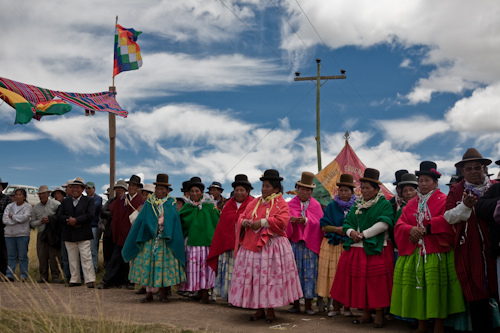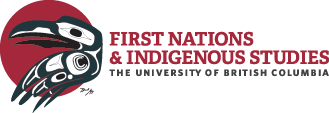
From the pre-sessional meeting of the United Nations Permanent Forum on Indigenous Issues in Bolivia, March 2010. The Permanent Forum is welcomed by the residents of Cota Cota Baja by the shores of Lake Titicaca. Photo: Broddi Sigurdarson, (c) 2010 UNPFII. Photo used with permission from UNPFII.
Despite the vast differences between Indigenous populations across the globe, many Indigenous peoples experience similar struggles. These include access to their traditional lands and recognition of their rights, including the right to practice their cultures, to speak their languages, and to engage in traditional economies and political systems, among other rights. We do not aim to profile these specific groups from across the globe but instead attempt to present some ways in which some of these groups have united across political borders and geographic locations, in the face of political opposition and countless other barriers, in order to engage with the international community and have their rights recognized.
This section on global Indigenous issues presents some of the international and transnational efforts on the parts of Indigenous peoples and governments to recognize Indigenous rights in an international context. To give the reader a sense of these efforts, we have highlighted specific international conventions and declarations. It must be emphasized, however, that the information presented here represents only a fraction of the ongoing transnational efforts to unite Indigenous populations internationally.
In this section
- Global Actions provides a brief overview of the ways in which Aboriginal peoples have organized across (externally-imposed) borders to bring their struggles to have their rights recognized to broader audiences. In some cases, these organizations have brought their grievances to the United Nations (UN), which has responded to these groups by creating new bodies and policies to support Indigenous peoples worldwide.
- Early attempts to recognize the rights of Indigenous peoples to their land, language, culture and socio-political systems came in the form of legislation enacted by the International Labour Organization. The first of these groundbreaking instruments (or legal documents) is the Indigenous and Tribal Populations Convention, 1957 (No. 107) of the International Labour Organization. In 1989 this was followed by the Indigenous and Tribal Populations Convention, 1989 (No. 169).
- The most recent of these instruments is the United Nations Declaration on the Rights of Indigenous Peoples, enacted by the UN and ratified by 144 countries in 2007. It has been praised as the most comprehensive international instrument for Aboriginal rights to date, yet its true impact remains to be seen.

